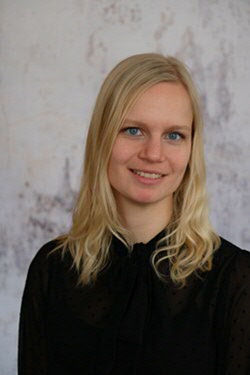Sustainable entrepreneurs and activists are not all that dissimilar

Sustainable entrepreneurs have the potential to solve some major problems. A new company can change the market and influence our way of life. But how do you transform such a problem into a business opportunity? Margo Enthoven (27), PhD student at the Centre for Sustainable Entrepreneurship at Campus Fryslân, will soon be awarded a PhD for her research into this very subject, during which she drew a number of remarkable conclusions.
By Gerard de Jong
Enthoven studied social geography and urban and regional planning in Groningen, and moved to Leeuwarden in 2016 to start her PhD at the Centre for Sustainable Entrepreneurship. ‘Urban and regional planning is much more about public administration; you are restricted by rules and regulations. In the case of sustainable entrepreneurship, you work with the market; once you have an idea, you can pursue it. It’s the frontline of sustainability, and that’s something I’m really interested in.’ She wanted to start right at the beginning, she says. “The first step is recognizing problems and opportunities. You first have to have an idea. How do people come up with them? We all have different values and identities. You’re never just a team leader. You’re also a scientist, a parent and coach of the football team, for example. All of that forms your cognitive framework – the glasses through which you observe the world. That determines how you look at a problem and see opportunities.
For her research, Enthoven interviewed 26 ‘enterprising activists and activist entrepreneurs’. ‘One of them launched his own plant-based ice cream because he opposed conventional dairy farming. And because he travelled a lot for his work, he came across coconut milk in Asia. “What if I throw that in the ice cream maker?” He had an idea and he tried it out. And now it’s available in shops. That idea became his business.’
Sustainable entrepreneurs and activists have the same goal: to open up the market and change consumer behaviour. ‘They’re not all that different and they follow a similar path, starting with an emotional shock. For example, the excessive amount of plastic, or witnessing abuse in the bio-industry: “Oh, I’m contributing towards this, I’m a link in this system.” Those who realize that try to establish a new identity and find a solution. That creates opportunities.’
In her PhD thesis, Enthoven describes a number of applicable strategies, such as broadening the market and connecting various groups. ‘An activist might point out the suffering associated with the production of meat. An entrepreneur comes up with a sustainable alternative and then calls it humane, or links eating less meat to a healthier life. That’s how the connections are made. There is a certain synergy between the two, and they could actually facilitate each other.’
The results are pleasing. ‘It’s a hopeful conclusion. Recognizing a problem is great, but it’s even better to then do something about it and come up with strategies that lead to business opportunities. You can incorporate that in teaching, you can write blogs about it or give workshops. It makes it tangible.’
Does she see herself becoming a sustainable entrepreneur in the future? ‘Ha! I do have an entrepreneurial spirit and have become very enthusiastic about this, partly because the people I have spoken to are so passionate! But I’m not sure if I have the guts to actually do anything like that. I will soon be moving to Stockholm for two years to carry out research into sustainable business models. I can certainly see myself eventually starting something up, so that I can actually contribute towards a solution.’
This article originally appeared in Connect winter 2020.
More news
-
15 September 2025
Successful visit to the UG by Rector of Institut Teknologi Bandung
